How Crusoe Is Building the Energy-First Model for AI Infrastructure
A story about placing the right bets before the market caught up.
Crusoe didn’t set out to power AI. They set out to make use of energy no one else wanted.
Today, they’re building a 1.2 GW data center campus in West Texas as part of Project Stargate, a $500B AI infrastructure initiative backed by OpenAI, Oracle, and SoftBank.
But what makes Crusoe interesting isn’t just the scale of what they’re building. It’s how they got here. A series of bold decisions at key inflection points shows what it takes to move from unconventional origins to an infrastructure heavyweight.
We sat down with Co-founder and COO Cully Cavness at a live recording of the Inevitable podcast in Austin to unpack how those decisions were made and what other founders can learn from Crusoe’s path.
Start With What Others Overlook
Crusoe’s first big bet was on flared gas. More specifically, wasted natural gas burned off at oil sites across the U.S. They saw stranded energy not as a liability, but as an asset. And they wanted to monetize it by colocating compute at the source.
“We’d say high-capacity compute just to avoid saying ‘Bitcoin.’” – Cully Cavness
At the time, that meant mining Bitcoin. But the insight wasn’t about crypto, Cully explained it was about proving they could build high-performance computing infrastructure in places the grid couldn’t reach.
Bet on Signals, Not Hype
Before generative AI went mainstream, Crusoe shifted from ASICs to GPUs. The founders recognized the wave of demand for machine learning compute early and adapted their model to meet it.
“Chase [Lochmiller, Co-founder] had early instincts that GPUs for machine learning would be a second market for us... We started way before anybody ever heard of ChatGPT. We were deploying clusters of GPUs in the oil fields powered by these flared gas resources.” — Cully Cavness
The transition to new hardware introduced new technical demands, including different cooling systems, tighter networking requirements, and significantly higher power density. That complexity forced Crusoe to invest in vertically integrated manufacturing, giving them tighter control over their supply chain, faster build cycles, and the ability to scale on their own terms.
Go All in When the Moment Demands
Crusoe was operating two capital-heavy businesses at once: one powering off-grid Bitcoin mining, the other scaling GPU infrastructure for AI workloads. Cully explained how the two operations, each capital-intensive, each demanding specialized teams and hardware, were increasingly competing for the same financial and human resources.
Despite being in what some would consider a Bitcoin movement, Crusoe made the difficult call to divest its Bitcoin mining business, transferring 135 employees and sunsetting the flared gas systems that had defined its early identity. The choice to exit Bitcoin wasn’t about market timing (they closed a few hours before the live taping). It was about conviction. Crusoe doubled down on what it saw as the more expansive opportunity of vertically integrated AI infrastructure, built from the power source up.
“It was very hard… But what it does for us is it allows us to focus on what we see as the vision for the future of the company.” — Cully Cavness
What they’re building now is massive. Project Stargate includes eight buildings, a custom-built 350 MW gas plant, onsite solar, proximity to wind, and a data center design optimized for liquid cooling and high-density GPUs. Crusoe is no longer just an operator. They’ve become a hyperscale developer, shaping the physical backbone of AI.
Built Different, From the Ground Up
Crusoe’s position today comes down to three things: an energy-first approach, control over their own hardware, and real endurance.
They built where the power was cheap and reliable, not just where land was available. They started manufacturing their infrastructure gear, so they could move quickly and dependably. Scaling AI infrastructure is capital-intensive, talent-hungry, and physically grueling. Cully shared stories of early deployments in remote oil fields, where grit became part of the company’s operating system.
The results speak for themselves. Crusoe isn’t just riding the AI wave; they’re laying the groundwork beneath it. For the full conversation and how it all came together, listen to the latest episode of Inevitable with Cully Cavness wherever you get podcasts.
🎙️ Inevitable Podcast
🤠 Thank You, Austin!
Great energy in Austin last week. Insightful roundtables, ambitious founders and leaders, and a big thanks to Cully Cavness for sharing Crusoe’s story and vision.
Appreciate our sponsors Gunderson Dettmer & J.P. Morgan for making it happen.
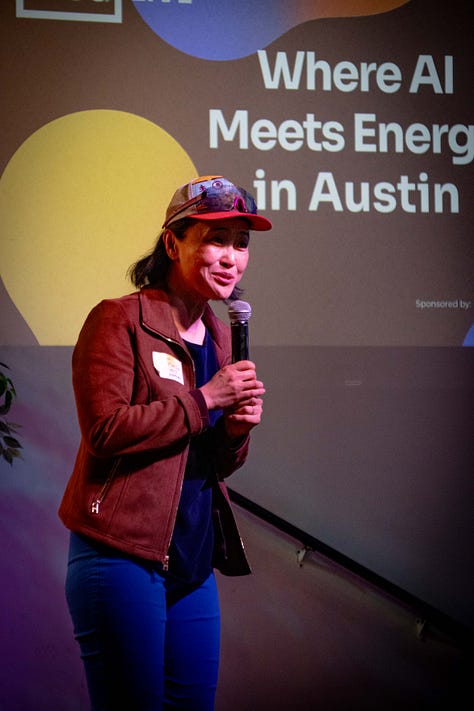
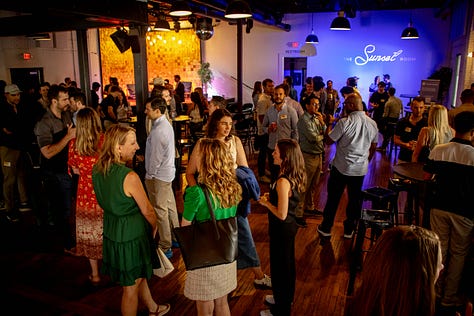


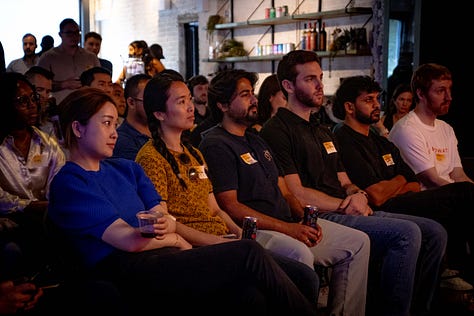
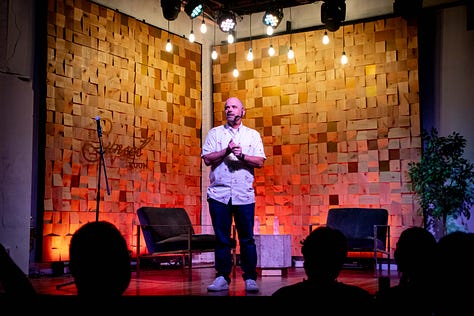
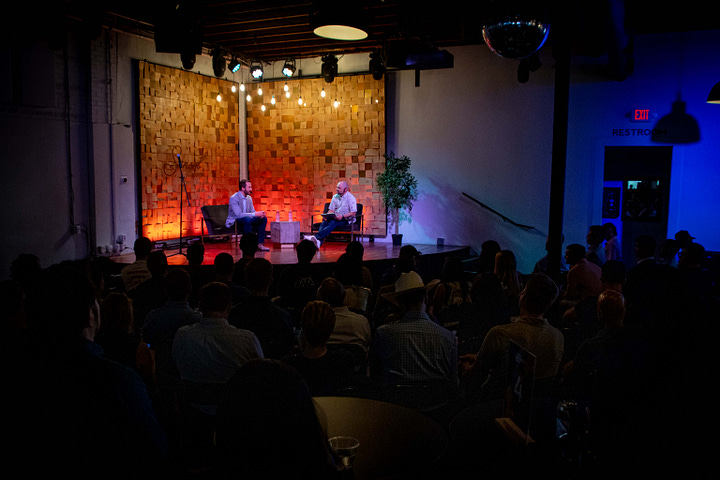
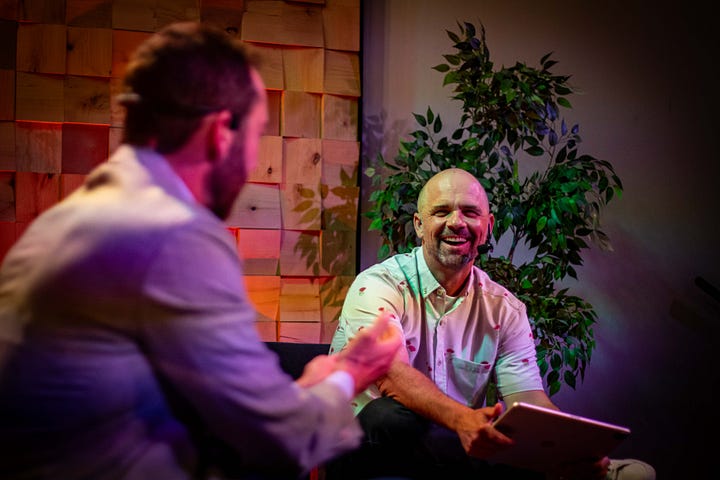
👩💻 Climate Jobs
Check out the Job Openings space in the MCJ Collective member hub or the MCJ Job Board.
Senior Manager, Solutions Delivery at Arcadia (Remote)
Chief of Staff to the CEO at Arch (San Francisco, CA)
Market Operations Engineer at Base Power (Austin, TX)
Senior Business Operations Manager at Crusoe (San Francisco, CA)
Manufacturing/NPI Engineer at Exowatt (Austin, TX)
People Operations Manager at Heirloom (Brisbane, CA)
Senior Product Designer at Overstory (Remote)
Director of Cloud Software at SPAN (San Francisco, CA)
Finance Manager at Weavegrid (San Francisco, CA)
🗓️ Mark Your Calendar
👋 MCJ Climate Marketing Meetup: Join us for a monthly lean-coffee-style meetup, where participants submit, vote, and discuss chosen topics. (Weds, June 19)
⚡️ Sometimes Boring, Always Important - What Investors and Founders Should Know About US Electricity Regulation: Join us for a tactical session designed by Greg Geller for early-stage climate tech founders and investors navigating utility-facing business models. Greg is the former Head of Regulatory Affairs at Enel North America and has been in the space for 20 years. He now runs Stack Energy, a regulatory affairs consultancy. We’ll cover how U.S. regulation works and the commercial implications for your business. (Tues, June 24)
The MCJ Newsletter is a FREE weekly email curating news, jobs, Inevitable podcast episodes, and other noteworthy happenings in the MCJ Collective community.
💭 If you have feedback or items you’d like to include, feel free to reach out.
🤝 If you’d like to join the MCJ Collective, apply today.
💡 Have a climate-related event or content topic that you'd like to see in the MCJ newsletter? Email us at content@mcj.vc

